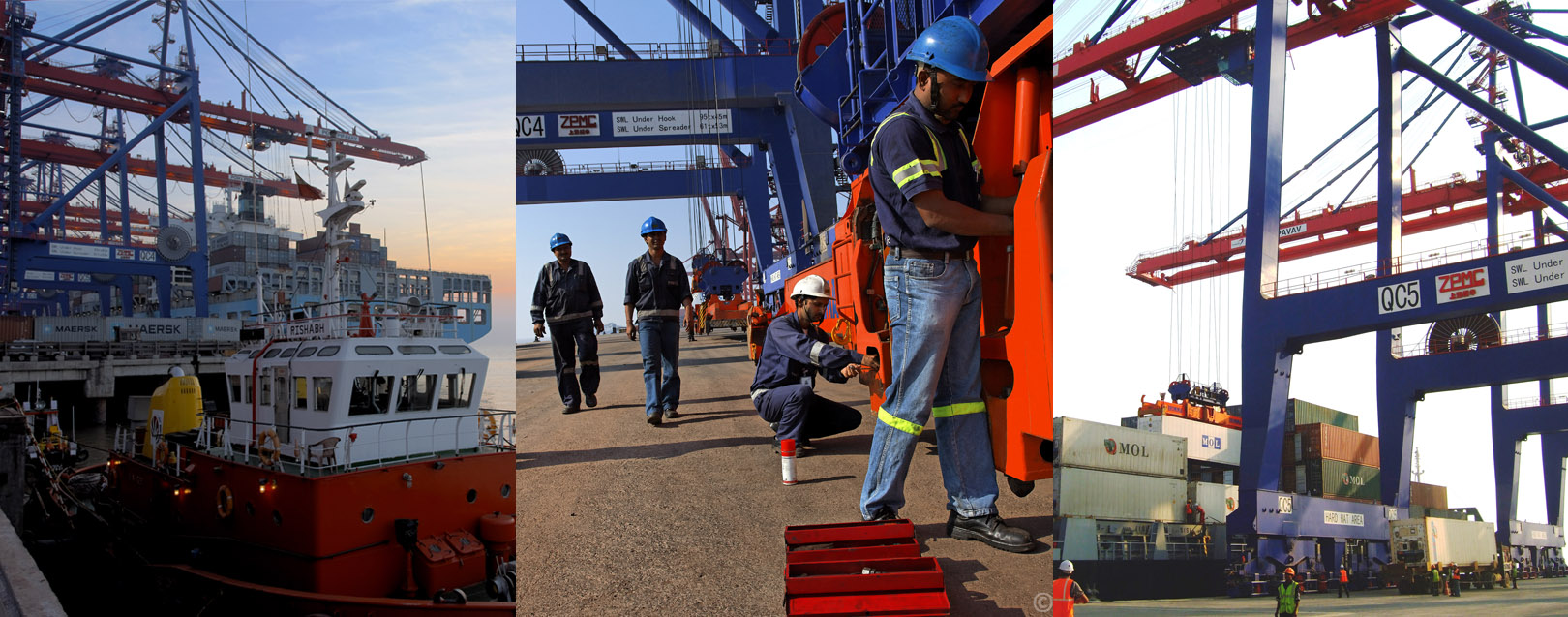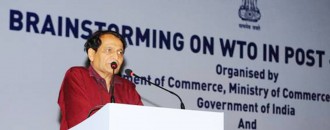
Has demonetisation hurt India's logistics industry?
Deepak Kumar
When he was 17 Ashwini Kumar moved from his village, in Jharkhand, to Haryana where he spent his next 19 years working as a truck driver, transporting goods from Delhi NCR to various ports in India. For Kumar, Prime Minister Narendra Modi’s vision of a digital cashless economy has had no practical relevance. For, he has never had a bank account and had never used a debit card to make any purchase. The only time Kumar visited a bank was when he had to deposit money into his wife’s bank account. “I have always been paid in cash for my work, and have always used hard cash for buying daily items. I have no idea how to withdraw money from an ATM but have deposited money in my wife’s bank account. The Prime Minister’s decision to withdraw Rs.500 and Rs.1000 notes have affected my job. I, along with many other truck drivers, have not received payments. Many truck owners have ceased operations. Many drivers are sitting idle. I hope everything becomes normal soon,” a worried but hopeful Kumar adds that the government’s decision has given him a good reason to open his first bank account.
The Centre’s November 8 announcement to scrap the high-value notes has had an undeniable impact on across various segments of logistics industry including freights, customs and clearance industry. Many employees have been laid off because in this unorganised sector most of the transaction is made using hard cash. The demonetisation drive has compelled many truck companies to cease operations, citing reasons that they had no hard cash to pay to their drivers. Since then, the traders and exporters have held several meetings with the relevant stakeholders, following which it was decided that henceforth payments will be made either by cheque or electronics transfer; a reason Kumar is quite ecstatic about.
Following the announcement, the movement of cargo was either stalled or moving at a snail’s pace. The freight industry uses hard cash for undertaking most of its payments-related activities, including making payments for the daily expenses of drivers and workers, diesel, local taxes, and tolls. The scarcity of high-value notes, however, slowed down the movements of goods across the country, leading to an indefinite delay in the delivery of exports consignments. Some industry analysts said the demonetisation decision has resulted in the lack of money flowing into the market, leading to a 75% decline in their transport business. Following the currency blackout, around 60% of freight movement came to a standstill.
“We have suffered a revenue loss of almost 40% since the current government launched the demonetisation drive. Our freight forwarding service, both by air and sea, has slowed down considerably. In December, too, we are expecting a similar decline. The number of orders is less, and there is a decline in goods movement. Overall, our business has been hit severely, and we are not expecting the situation to improve until mid-January. Once there is enough cash available in the market or people are comfortable using digital cashless technology, our business will not pick up again. Hopefully, we will see a pick-up in activity from February,” said J K Arora of Cargo Movers.
Pointing out the instant impacts of the government’s demonesation drive, Confederation of All India Traders (CAIT) National Secretary General Praveen Khandelwal said, “The sudden announcement to demonetise the high-value notes came as a shocker to everyone in the industry. The business activities during the initial days of implementation were down by about 50%. The truck owners had to spend about Rs.15000 every day in loading-unloading, in addition to other expenses. Since there was a cash crunch all over the country, their business suffered losses, which considerably impacted the country’s exports as well as imports. The situation has eased down a bit, but it will continue till mid-January.”
STEP IN THE RIGHT DIRECTION?
The industry, however, has welcomed the government’s ideas of promoting a digital economy and curbing the ongoing corruption and is unfazed by its long-term negative impact. It said its businesses and activities at ports, customs and clearance are now coming back to normal. “Overall impact on ports, custom-officials and clearance industry has not been so much as generally felt that the demonetisation exercise would de-rail the “Smooth Process” in their regular business operations. The impact will be only to a very limited extent,” said P S Atree, President, Delhi Customs Clearing Agent Associations. Atree said the Customs Department also took the initiative to minimise the ill-effects of demonetisation by accepting old currency notes for paying old dues or demands raised by several departments of customs.
To deal with the cash crunch and minimise its impact, several logistics companies have already initiated bank transfers for the reimbursement of their staff for their conveyance, incidental expenses, while making transactions through RTGS/Cheques for covering day-to-day expenses including monthly rental, utilities, and other service charges. The majority of other trade-related charges i.e. customs duties, airlines/shipping is made by the NEFT/RTGS/Cheques.
Almost all the statutory charges such as customs duty or payments to custodians/airlines/shipping lines are already made electronically, through NEFT, RTGS or other forms of digital payments, by customs brokers/importers. “Therefore, the impact has not been as significant as initially viewed,” Atree said. According to him, the set-back is only seen where cash plays a vital role in functioning and availing support of labour, transportation etc. from the unorganised sector and that it should get stream-lined in due course, may be in two or three months, as they have also since initiated the acceptance of digital mode of payment.
Another Mumbai-based sales & operations head of a major logistics company said the growth in the logistics industry has been slow for the last three months and our company too registered a marginal decline in November. But it was not entirely due to the demonetisation. Of course, there will be a short-term impact, but it will phase out soon.
The industry feels the government’s latest decision is future-oriented and a step in right direction. The digital-mode for the unorganised sector is important to maintain transparency in the sector. It will help in maintaining their transactional records as per the audit requirement, thereby avoiding any harassment by tax authorities for their transactions and turnovers. By and large, the government’s latest decision has instilled in people a sense of assurance that they are now playing a part in the national building project, whereby corruption and black money are becoming a matter of the past and transparency and efficiency will help the country’s trade business in future. “It will play an instrumental role in building the transparency and ultimately boosting the country’s image and Exim trade business,” said Atree.
According to the recent data, the truckers industry contributed 4.8% to the country’s GDP in 2015-16 to Rs.544,800 crore.
Demonetisation may also have an initial impact on trade activities, but it has also reformed business practices in the shipping industry. Earlier, the port and customs officials used to charge “speed money” from companies, freighters and shipping agents for consignments to go through smoothly, but in the absence of high-value notes and the government’s renewed emphasis on curbing corruption, they have been discouraged to continue with this decade-old practice.






 to success.
to success.